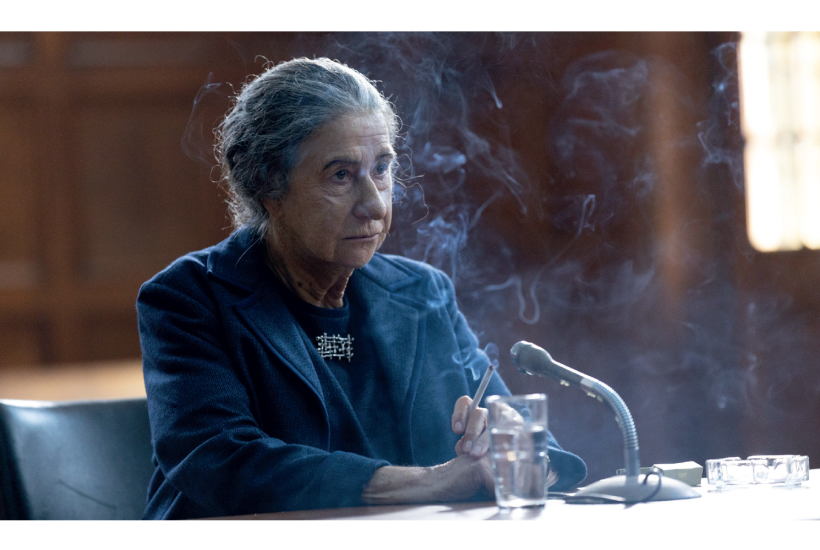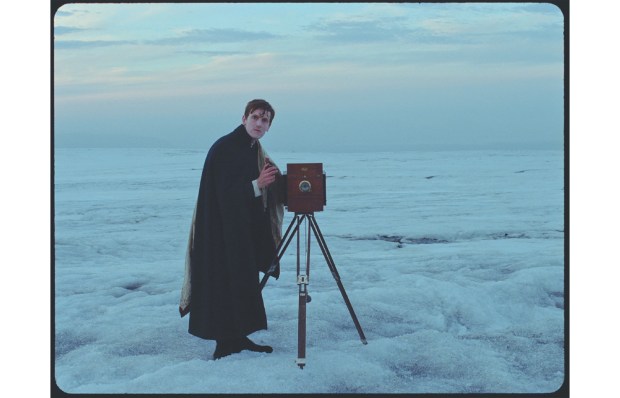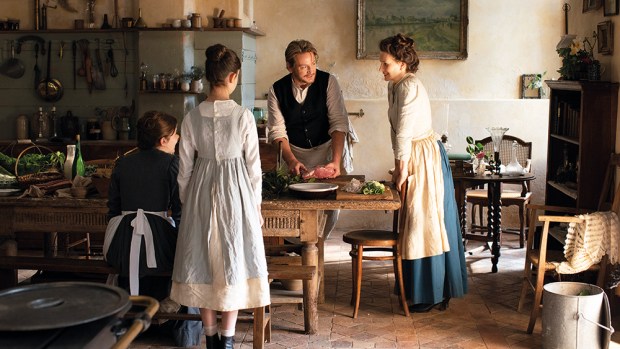Born in Tsarist Kyiv in 1898, Golda Meir grew up with what she called a ‘pogrom complex’. That perhaps explained why later, as Israeli prime minister, she had such harsh words for Palestinians and Arabs. But then she had harsh words for a lot of people. Moses, she complained, ‘took us 40 years through the desert in order to bring us to the one spot in the Middle East that has no oil’. Women’s Lib, she averred, was ‘foolishness’, since the real discrimination was that men were unable to bear children.
An inspired phrase-maker, a phenomenal organiser, a patriotic socialist who, as Labour minister, had practically created Israel’s welfare state, Meir makes an inviting subject for a biopic. And Golda starts in the right place, with the prime minister (Helen Mirren underneath three-and-a-half hours of make-up) walking through a crowd of protestors on her way to the 1973-4 inquiry into the Yom Kippur War. Was Golda the saviour of her country, having readied the army for a potential invasion by Syria and Egypt despite the complacent do-nothing advice of her intelligence officials? Or was she out of her depth, having done too little, too late to anticipate a catastrophic attack that took 2,500 Israeli lives?
The protestors’ faces, however, are blurred, and throughout the film the Israeli people – the real protagonists – are strangely absent. When Golda addresses the nation, we see her speaking to the cameras, but there is no shot of families at home, crowded around the TV and wondering whether they face annihilation. The director Guy Nattiv has said he wanted to reproduce the claustrophobic atmosphere of the Tel Aviv HQ, and he succeeds. But claustrophobia only works if it is accompanied by a certain amount of dramatic energy.
True, Mirren channels Golda’s brisk authority, putting generals in their place and strongarming Henry Kissinger (Liev Schreiber) into sending American materiel. For most of the film, though, she cuts a lugubrious figure, walking alone down long corridors, lighting one solemn cigarette after another, entering rooms without any discernible impact. The real Golda’s waspishness is replaced by a gloom so all-enveloping she makes Gordon Brown look like Harry Hill. Nor does anyone else inject much dynamism into the film. Even when the American air convoy arrives by night, a decisive moment in the war and a scene with great cinematic potential, it is presented in static terms, with the top brass all standing stock-still on the roof craning their necks at the sky.
The visual inertia wouldn’t matter so much if the screenplay wasn’t of such variable quality. At its nadir, General Ariel Sharon appears as a grunting man-child. ‘You’ll get your chance one day,’ Golda implausibly tells him, ‘and they’ll make you prime minister for it.’ As we reel at this prophecy, she adds sagely: ‘But remember: all political careers end in failure.’
There are things to enjoy. Rami Heuberger plays Moshe Dayan persuasively as a battle-scarred hero losing his grip but still peerless in his understanding of war. It’s amusing to watch Camille Cottin as Golda’s private secretary Lou Kaddar, loyal, tender-hearted, quietly unshakable – i.e. the diametric opposite of her character in Call My Agent! The early scenes of rising panic are well-constructed.
And we do get a few decent lines, the best by far when Golda negotiates with Kissinger at her kitchen table. He reminds her that he is ‘an American first, Secretary of State second, and a Jew third’. Golda: ‘You must remember, Mr Secretary, that in Israel we read from right to left.’ Then again, it isn’t actually the film’s line. It’s one of Golda’s.
Got something to add? Join the discussion and comment below.
Get 10 issues for just $10
Subscribe to The Spectator Australia today for the next 10 magazine issues, plus full online access, for just $10.
You might disagree with half of it, but you’ll enjoy reading all of it. Try your first month for free, then just $2 a week for the remainder of your first year.














Comments
Don't miss out
Join the conversation with other Spectator Australia readers. Subscribe to leave a comment.
SUBSCRIBEAlready a subscriber? Log in